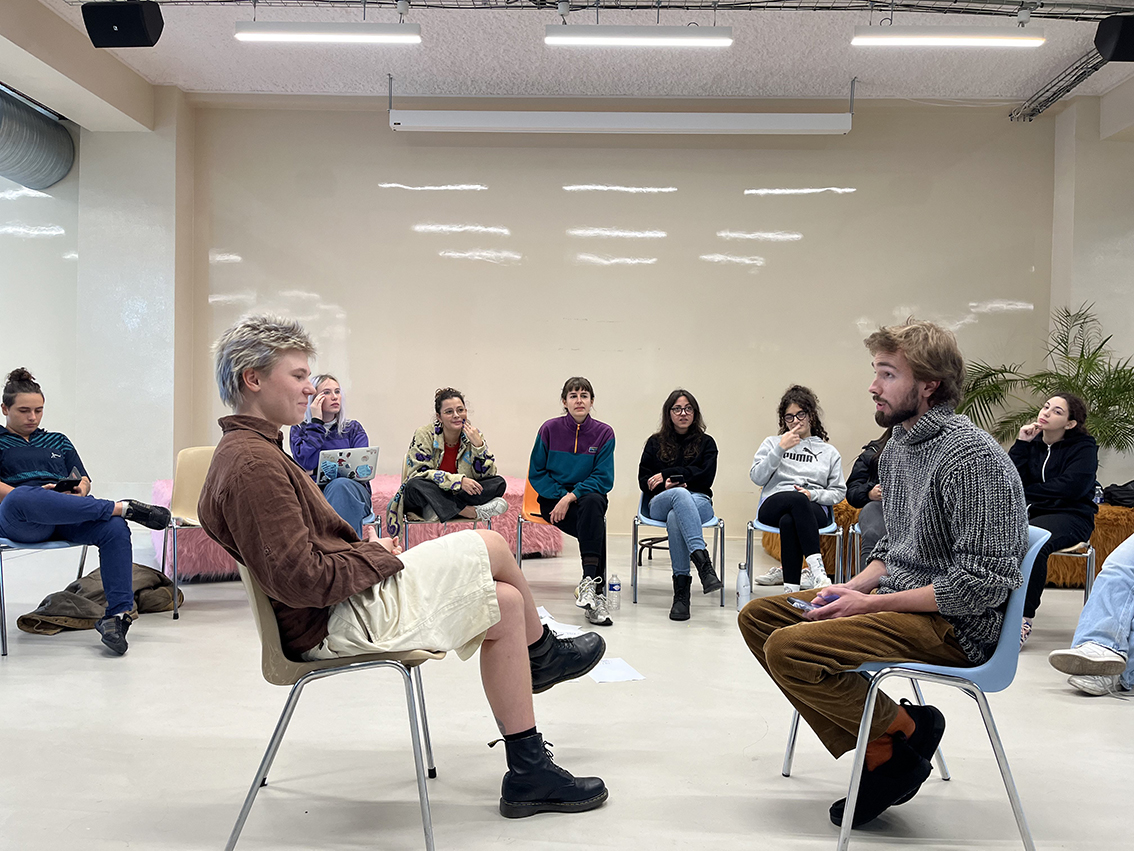Advocacy roleplay
Download the methods
To download the methods, click here
Target group
No. of pax
Environment
Time needed
Materials
• Internet access or printed bios of (real) MEPs
• Pens and paper or laptops
• Template for preparing questions and demands
• Optional: name tags or props for roleplay
Objective/aim
To empower participants in understanding how political advocacy works at the EU level, build confidence in engaging with decision-makers, and strengthen their argumentation, collaboration and public speaking skills.
Step by step instructions
Step 1
Introduction
5 min
Briefly introduce the role of MEPs and how youth can engage with them.
Explain the discussion format and time frame for the actual advocacy meeting if planned. Depart from the youth’s own demands or bring in some recent news on a chosen topic.
Step 2
Form research pairs/small groups
15 min
Participants work in pairs or groups of up to four people.
Each group chooses or is assigned a real MEP (ideally from different political groups or countries).
They research:
• The MEP’s party affiliation, country, committees
• Their past votes or statements on a selected issue
Step 3
Develop your demands and questions
20 min
Each group prepares:
• One clear advocacy demand and question for the MEP
• 2–3 supporting arguments
• Optional: A short intro (Who are you? Why does this matter to youth?)
• Optional: prepare a symbolic action, prop, or visual aid to support your point
Step 4
Roleplay: Youth meets MEP
40 min
Introduce the scenario. In front of the group (or in breakout pairs), each group presents their demand in a mock meeting. One person from one group volunteers to play the MEP (based on their real political position), and one person from another group plays the youth advocate.
• Include a ritual for the youth where they actively step in and out of their role (“shake off your role”).
• If there is enough time, make sure the participants switch roles, so everyone has the possibility to try both sides.
• Encourage realistic but constructive responses: MEPs can disagree or be hesitant, and youth should try to respond or negotiate.
Step 5
Reflection and debrief
20 min
Group discussion in small groups or the whole group depending on group size.
Reflect on the possible questions:
• What was challenging or empowering?
• What worked in getting your message across?
• How did it feel to play the politician, (especially when playing the role of a politician with whom you disagree)?
• How did it feel to play the youth advocate?
• How is it to debate with someone who has totally opposite beliefs and points of view?
• Would you do anything differently in a real-life meeting?
Tips for the trainer
• Encourage creativity: props, posters, and slogans can help boost engagement.
• Model respectful disagreement and political nuance when helping with roleplay prep.
Alternative
Instead of real MEPs, you can create fictional characters with clear ideological profiles to keep it simpler. This also works well if access to the internet is limited.
Comment
Source
Developed by Maria Hammer within the My Elections – My EU! project, based on participatory advocacy workshops and simulations from various European youth trainings implemented by colleagues at Südwind


